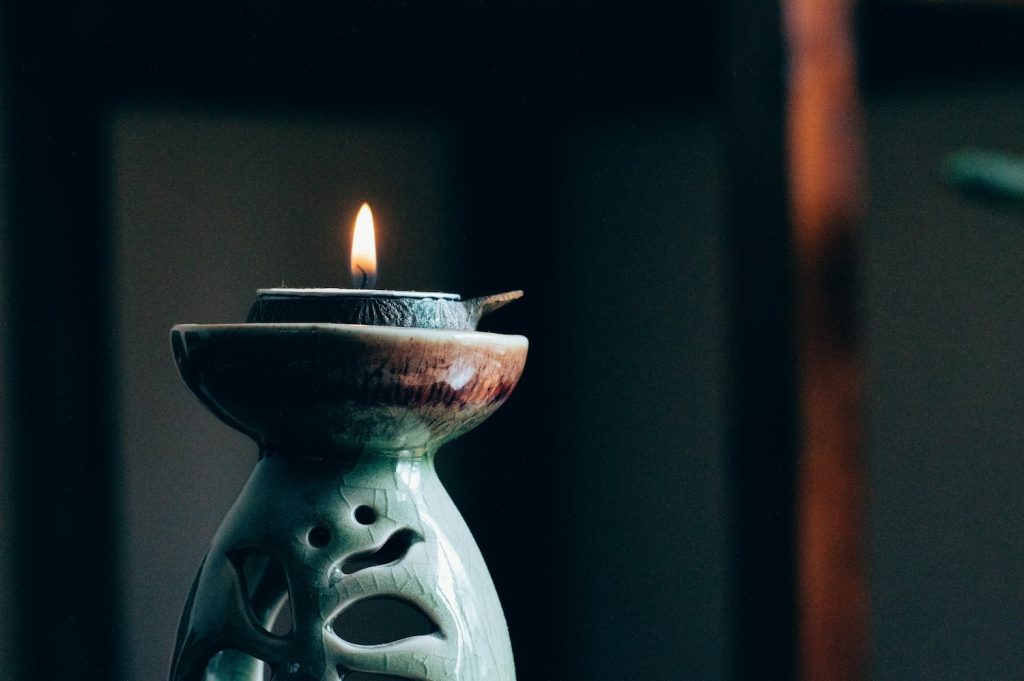The other day, one of my dharma sisters told me a koan:
A student asked her teacher: “Are you really present all the time?”
The teacher replied: “Yes, I am.”
There is a long tradition of Zen students asking their teachers whether they are truly enlightened. In most of the stories I’ve heard, the teacher nimbly evades or deflects the question, or turns it back on the student. For example, this story from The Hidden Lamp, a collection of koans featuring women:
Joko Beck had finished a talk and asked if there were any questions. A young man raised his hand and bluntly asked, “Are you enlightened?”
Her response was immediate. Laughing, she said, “I hope I should never have such a thought!”
In Soto Zen teachings, we are instructed again and again that enlightenment is not something to be grasped or something to seek to attain. So when I heard this new story, a koan in which a teacher responded simply, “Yes, I am,” I actually laughed out loud. It felt fresh and energizing to hear a teacher say so with such straightforward confidence.
This story became a jewel that I turned over in my heart many times, looking at it from all angles. I could feel in my body that the teacher’s answer was skillful and encouraging, even though it was unusual and could even be seen as going against tradition. But why? I became fascinated by the project of trying to articulate this.
I kept on thinking of this line from the “Song of the Jewel Mirror Samadhi,” a poem usually (and maybe falsely) attributed to Dongshan Liangjie, a Chinese ancestor: “The meaning is not in the words, yet it responds to the inquiring impulse.”
The meaning is beneath the words. I look closely at the student’s question: “Are you really present all the time?” The first clue is in the word “really,” which means that this isn’t a question about presence, it’s a question about doubt. When the student said, “Are you really…?” she meant, “Is it possible?” And when she said “you,” she meant “a human being.” This wasn’t a question about the teacher as a specific person, and it wasn’t a question about “being present” as a constant state of being, and the teacher heard that.
The student’s real question was: “Is it possible for a human being to wake up?” And undergirding the doubt in a human being’s potential to wake up was doubt in herself. That was her real question: “Is it possible for me, with all my humanness, to wake up? Do I really have buddhanature? Can I really awaken to the nature of this life?”
Thus, the teacher responded, “Yes, you can.”
That’s why I love this exchange so much. I love it because, on its face, it could seem like an arrogant and self-aggrandizing response. And it might have been, if the student had asked “Are you present all the time?” with a different tone and intention. But this teacher heard doubt and knew that the most skillful response is to swiftly undercut it.
When any one of us takes ourselves, and our path, completely seriously, we give other people permission to do the same. In this time and place marked by corrosive doubt, skepticism, and cynicism, that is our medicine. We need the balm of sincerity, forthrightness, and confidence. Confidence in ourselves, confidence in each other. Confidence in all human beings as buddhas.
It reminds me of something Kosen Gregory Snyder Sensei once advised me to consider in giving feedback: Am I speaking to this person as a buddha whose strengths I am lifting up? If not, whatever I say will miss the mark.
I write this as a bow of gratitude to the teacher, and to the student, and to the story. And to the teaching: Yes, awakening is possible. In fact, it is already so.
♦
Originally published on Kaishin Victory Matsui’s Substack. Reprinted with permission.
Thank you for subscribing to Tricycle! As a nonprofit, we depend on readers like you to keep Buddhist teachings and practices widely available.
